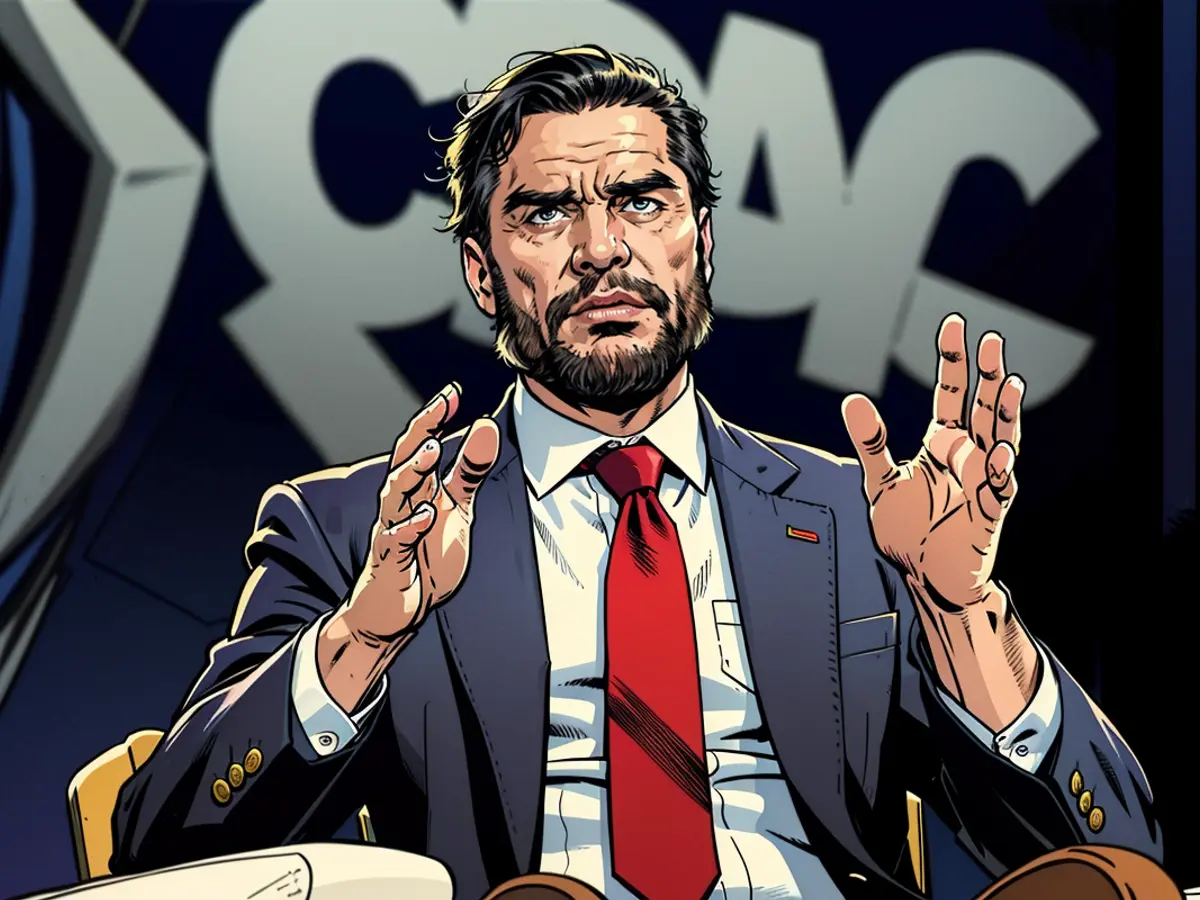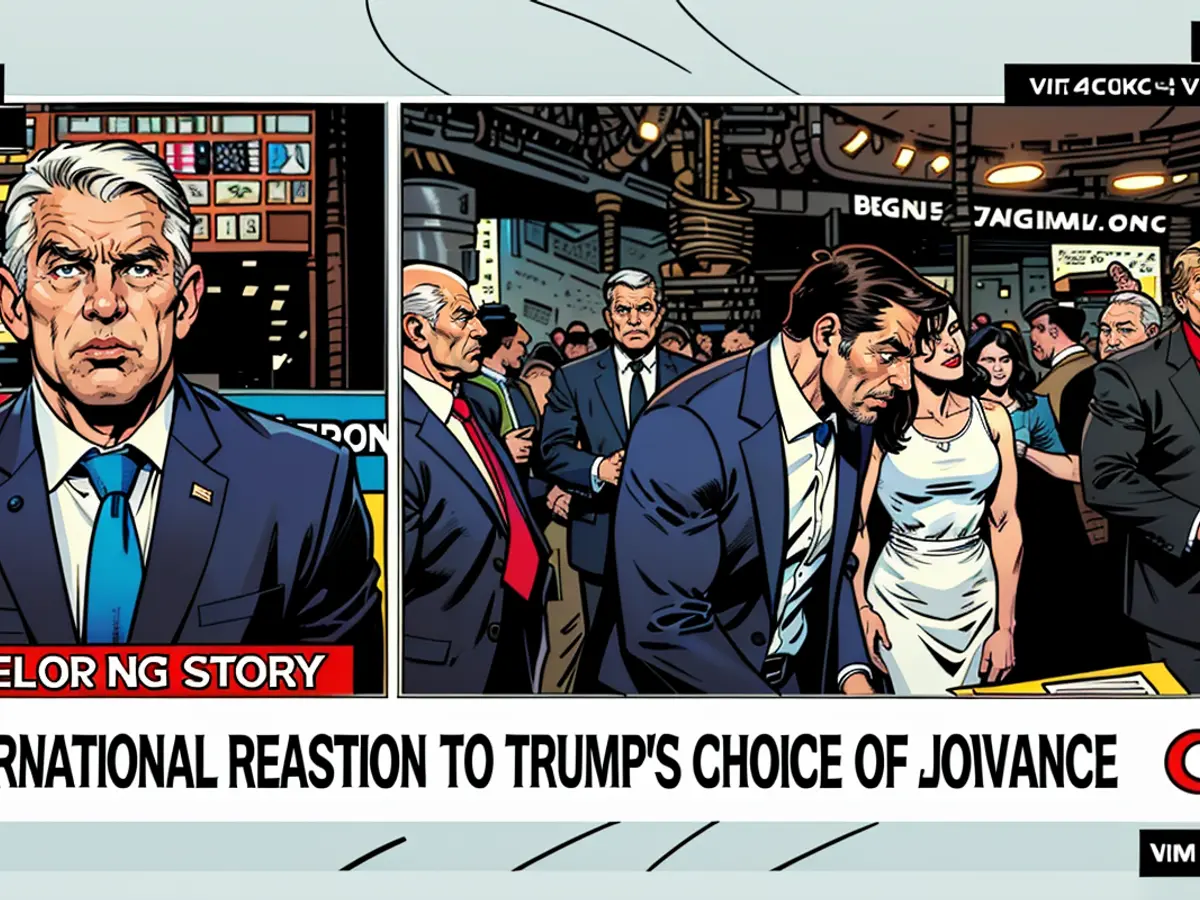Why Europe looks at Trump’s VP pick with anxiety
By choosing Vance, Trump has sent a clear signal that, if elected, his America-first foreign policy will be back in force.
Vance, a junior senator for Ohio, is a staunch critic of sending support to Ukraine as it tries to defend itself against Russia. Like Trump, he has repeatedly criticized NATO and its European members for not spending enough on defense. And he has made a number of comments that have raised eyebrows across the pond – including when he said the United Kingdom would become the “first truly Islamist country that will get a nuclear weapon” under the new Labour government.
His nomination puts an end to the hopes by some of America’s allies that Trump might soften his foreign policy stance if reelected.
That hope was fueled by Trump himself. While he has often repeated his claim that he “would end the war” in Ukraine in one day if reelected and said he would not send any more money to Kyiv, he stopped short of getting his allies in Congress to block the $61 billion aid package approved earlier this year.
“He could have told members (of the Congress) not to vote for it and instead he tacitly allowed it to go through,” said Kristine Berzina, a geopolitics and security expert who leads the German Marshall Fund of the United States’ Geostrategy North program.
“So there was a sense in Washington that Trump has been in a fairly pro-Ukrainian moment, and that he should have the benefit of the doubt – perhaps his views on Europe and Ukraine have evolved, especially given the much higher defense spending in Europe now,” she told CNN in an interview.
But with the selection of his running mate, Trump dashed these hopes. “JD Vance does not appear to be interested in being a good ally to Europe,” Berzina said.
At the Munich Security Conference in February, Vance suggested Ukraine should negotiate with Russia because the US and other allies do not have the capacity to support it. Ukraine and NATO have dismissed that scenario, because it would most likely mean Kyiv would have to give up some of its pre-war territory.
“I think what’s reasonable to accomplish is some negotiated peace. I think Russia has incentive to come to the table right now. I think Ukraine, Europe and the United States have incentives to come to the table,” he said at the conference, adding that the fact that Putin “is a bad guy does not mean we can’t engage in basic diplomacy.”
In Munich, Vance notably skipped a key meeting between a bipartisan delegation of US senators and Ukrainian President Volodymyr Zelensky, saying he didn’t think he’d learn anything new there. He did attend a meeting with Zelensky in Washington in December but left early.
Asked by CNN’s Kaitlin Collins about Vance’s assertion that the outcome of the war would not change even if Ukraine received US funding, Zelensky said Vance did “not understand what is going on here.”
“To understand it is to come to the frontline to see what’s going on... without this support. And he will understand that millions of people will be killed,” he added. “He doesn’t understand it, of course, God bless you don’t have the war on your territory.”

Pivot to China
Vance has argued that the US should turn its focus away from Russia and toward East Asia, because “that is going to be the future of American foreign policy for the next 40 years.”
The idea that East Asia, and China specifically, poses as big, if not a bigger, threat to the US than Russia is not unique to Vance. Trevor McCrisken, an US foreign policy expert and associate professor at the University of Warwick, said there is bipartisan agreement between Democrats and Republicans that China is the biggest threat internationally to US interests.
“Both parties say you’ve got to be strong, and you’ve got to prevent China from fulfilling whatever ambitions it might have, economically, militarily, and so on. It’s just that most Democrats and the more moderate Republicans believe that Russia is also a threat,” he told CNN in an interview.
In the eyes of most Western leaders, the threats coming from China and Russia go hand in hand. Just last week, NATO leaders called China a “decisive enabler” of Russia’s war on Ukraine in what was the alliance’s most forceful statement on Beijing’s involvement in the conflict.
“To have a rather simplistic view that if you back away from Ukraine that’s going to help you with China, it might not be the case,” McCrisken said, adding that Vance is likely trying to use his more anti-European stance for political reasons too.
“It is a way of painting Europe as not standing up for itself when it should. Historically, the US has had to go in and bail out Europe so many times.”
Sam Greene, the director of the Democratic Resilience Program at the Center for European Policy Analysis (CEPA) and a professor of Russian politics at King’s College London, said that Vance’s nomination should make it clear to America’s allies that the shift toward the Trumpian kind of Republican foreign policy is likely more long-term.
“The last time we had a Trump presidency, I think Europeans looked at this as potentially a four-year blip, and then breathed a sigh of relief when Biden was elected and thought that we’d return to normal ... and I think that there was some wishful thinking in that, and people have now begun to recognize that,” he said.
The effect of this shift, Greene said, is apparent even now – despite the White House being in Democratic hands. US President Joe Biden had an extremely hard time getting the latest Ukraine aid package through Congress, forcing Ukraine’s European allies to start thinking about a plan B. The initial delay in Congress approving the package resulted in a Czech-led initiative to find and fund alternative sources of ammunition for Kyiv, among other efforts to look for assistance elsewhere.
“The unreliability of American leadership in Europe has been a fact that Europeans have now had some time to get used to. Even if Biden is reelected, America will be difficult to rely on,” Greene said.
If Trump chose someone with a more traditional foreign policy stance to be a running mate – for example the former UN ambassador Nikki Haley, America’s allies could have hoped that post-Trump, the Republican party might pivot back to what Greene called “trans-Atlantic solidarity.”
“But if in fact, not only are we looking at another Trump administration, but we’re looking at a future of the Republican Party that is dominated by people like JD Vance, then that is a much more sobering prospect for Europe,” he said.
CNN’s Nic Robertson contributed to this article.
Vance's comments regarding Ukraine negotiating with Russia instead of relying on international support have raised concerns among European leaders, as they see it as a potential threat to Ukraine's territorial integrity. Despite this, many European countries are beginning to explore alternative sources of aid and support, given the perceived unreliability of American leadership in Europe.
In light of Vance's nomination, foreign policy experts have suggested that the shift towards a more isolationist and America-first foreign policy, as seen during Trump's first term, might be a long-term trend within the Republican Party. This could have significant implications for the trans-Atlantic relationship, potentially making it more challenging for European countries to rely on the United States for support.







